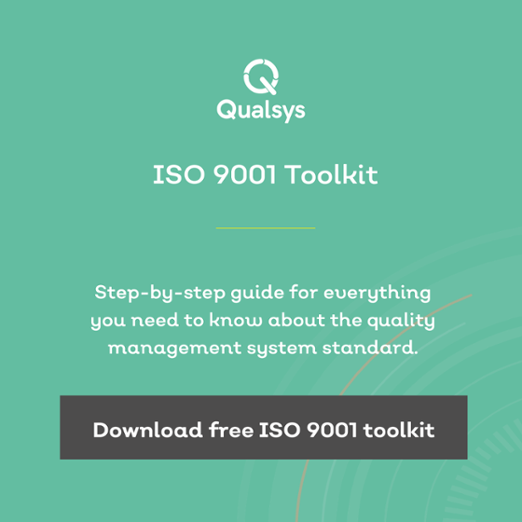Want to contribute to this article?
During the 2017 Qualsys User Group, Professor John Oakland, founder of Oakland Consulting and author of best-selling book "Total Quality Management and Operational Excellence", said:
In the past, quality was synonymous with control, compliance and cost; there was an excessive focus on internal capabilities and overly bureaucratic approaches.
Quality is now a strategic force which is key to building a learning organisation.
Your organisation must be quick to change, avoid excessive costs, and avoid reputational damage. The margin for error has decreased but the likelihood of error has risen. Managers must find a new approach to quality—one that moves beyond the traditional 'total quality management' tools of the past quarter century.
Watch the presentation and earn CPD points here

Does your organisation promote a learning culture?

Isabelle Pound, Qualsys Project Manager, says there's no 'one size fits all approach' when it comes to culture.
She recommends asking your department heads the following five questions.
These questions are particularly useful if you're thinking of implementing an electronic quality management system.
1. Does our leadership team promote active thinking?
High-performance organisations have management teams who will challenge data, reports and strategic plans. It's worth spending some time with your management team and asking them whether they feel there's an open culture which promotes discussion.
Management teams must feel confident that they can identify, communicate and appropriately manage risk and opportunity.
If in conversations you find management aren't stepping up, start with this article ISO 9001:2015 Leadership Battles, in which quality professionals share their experiences and advice for getting management teams engaged.

2. What are our company values?
Alignment is a challenge for most organisations. Even within departments, there can be different ideas about the organisation's strategic objectives.
Start by asking the leader of each department what they think are the attributes of the company culture, then note whether there are any gaps.
If the company values haven't already been articulated, Qualsys recommends the Jim Collins Company Values framework, which you can access for free here.

Qualsys's PEOPLE values
3. Do the codes, words and actions of senior management align with the desired culture?
Each organisation's culture is unique. Culture is a mixture of the organisation's history, rituals, structure, industry and leadership. It combines ethics, values, risk appetite, structures, systems, leadership, controls, freedom, authority and accountability.
Ask your management team whether the codes, words and actions align with the desired culture? What has been their experience? Does the culture have any negative aspects to it?
Pockets of negative culture within an organisation may impact behaviour and increase risk. Find out from your management team if they believe there are any issues or gaps in certain areas of the business.

Read a chapter on the 'Cultural Web'
4. Do employees have the opportunity to raise issues and opportunities?
Ask management teams whether they feel there's a sharing culture. Start by asking them whether employees raise issues or opportunities.
The management team might say that there are no issues, but this is unlikely to be the case. Does there need to be a more formal process? How can you promote the sharing of knowledge and ideas? Does your organisation offer a confidential hotline to make it easier for employees to report issues, complaints and allegations? If so, is it effective in dealing with the issues and reporting the results?
10 tactics to drive engagement with quality
5. Are staff at all levels treated in the same manner for their successes and failures?
Accountability is crucial for a culture of quality. Part of this is making sure employees at all levels of the organisation are responsible for their successes – and their failures. Do managers feel this is fair?
Read our blog article 'Changing QESH Culture through Drama – Coca Cola'
What you should do now
A defective culture will subvert even the most rigorous systems and processes. As John Oakland says in Redefining Quality:
What is quality? It is at the heart of good business. Quality still remains the most important competitive weapon we have. Putting the customer at the heart of everything we do, and meeting their needs time and time again in a consistent manner is key. It is a simple concept, but meeting those requirements, more than ever now, things go wrong. Quality can be hard to attain, it can be hard to maintain and in a large and complex organisation, it can be very easy to lose.
Watch John's presentation in full here or download our stakeholder engagement planner for a step-by-step guide to engaging your team with quality.
ISO 9001 is the core standard for a quality management system - try our free toolkit here:









Share your thoughts on this article